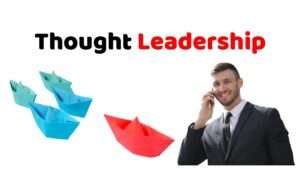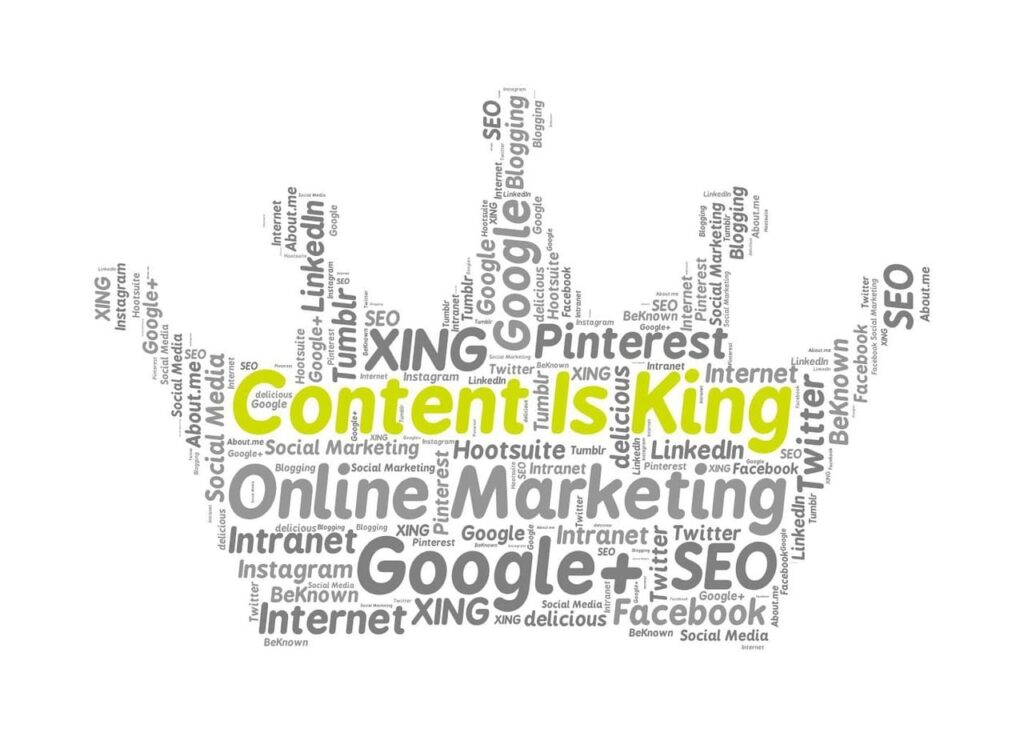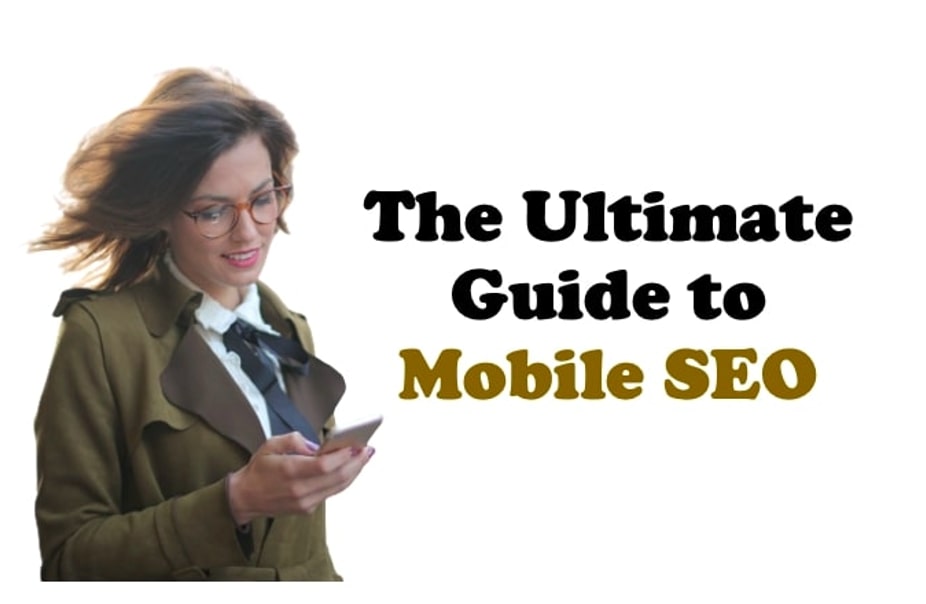EAT is an acronym for Expertise, Authoritativeness, and Trustworthiness. It is considered one of the most important ranking factors in Search Engine Optimization. It measures the trust and credibility a site has with its target audience.
Expertise is the degree to which the author knows the subject matter.
Authoritativeness is the degree to which the author’s opinion is worthy of respect or attention.
Finally, trustworthiness is the degree to which readers believe in what an author says on a given topic.
Quality content is not just about how well you write. It’s about how well you understand your audience, what they want to read, and how to give it to them in a way that resonates with their needs.
This section will help you understand what quality content means in terms of its three pillars: Expertise, Authoritativeness, Trustworthiness.
Quick Links
Definition and Scope of E.A.T

Expertise
The first quality is expertise. The writer should be knowledgeable about the topic they are writing about. If the topic is too complicated, they should have adequate knowledge to research it and provide accurate information to their readers.
Authority
The second quality is authority. The writer should have an authoritative voice when writing about a topic. This means that the reader will know that the writer has authority on the subject because of their experience and knowledge.
Trustworthiness
The third quality is trustworthiness, which means that the reader knows that what they are reading is true and accurate information because of how confident and knowledgeable the writer sounds throughout their content.
Background of E.A.T
E-A-T is an acronym for expertise, authoritativeness, and trustworthiness. It is a concept that emerged in the 1990s to describe the qualities of a good doctor. The idea was that patients would be more likely to follow their advice if they knew the doctor had a high level of expertise, authoritativeness, and trustworthiness.
The same concept can be applied to content creation if readers feel they can trust your content because you have the three qualities that make makeup; they are more likely to believe what you say and take your advice.
Google floated the E.A.T concept in July 2018 and penalized those blogs that lacked E.A.T. In the initial phase, it was named “medic update” and applied to medical and health-related blogs as they fall in the YMYL category.
However, the E.A.T was later applied to another couple of subjects. In its Search Engine quality rater guidelines, Google has provided complete details with examples regarding E.A.T.
Why E.A.T Matters?
E.A.T matters simply because visitors are looking for it. It is as simple as that.
Let me explain it a bit more, and I hope you will understand the whole background.
Mostly people search on google because they want to know something or find a piece of specific and accurate information. To achieve the goal, they type their query into the search box and get the answer they are looking for.
Google has more than a hundred billion web pages indexed and finds new ones daily. Therefore, we trust Google because it shows trustworthy and authentic information, which has authority and expertise in their respective field.
What will happen if Google brings spammy, Substandard, and Low-quality content on Top?
Of course, we will lose our trust in Google and try to search different search engines to find the answer to queries or information. That’s Why Google Promotes and Rank Higher as the Most Trustworthy, Accurate, Authentic, Authority, and Expert Opinion because people love to see these qualities in content.
Google’s policy is always customer-centric, so they guide content creators and web designers to create content for visitors. In addition, they insist on producing and sharing quality content to gain users’ trust.
Is E.A.T a Ranking Factor?
A renowned American technologist, entrepreneur, and founder of Search Engine Land, Danny Sullivan, tweeted his opinion regarding the impact of E.A.T on ranking.
He agrees that we should consider E.A.T as a major ranking factor because it gives signals to search engines, and on the bases of these signals, search engines rank and place our website.
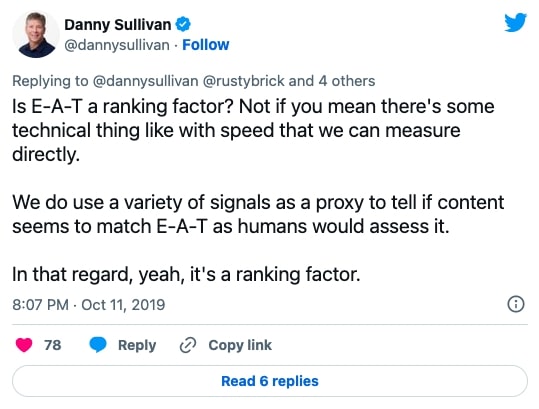
SEO expert and growth strategist Grant Simmons has disclosed the true nature and importance of E.A.T.
He tweeted, “E.A.T and YMYL are concepts introduced for Quality Raters to dumb down algorithm concepts. They are not “scores” used by Google internally.”

These tweets point out that we must go beyond the simple “algorithm” and objective calculation to rank higher in Google. That is why content is considered the king, and we should prioritize it.
Quality content is the only thing you care about. It is the most important part of your marketing strategy and will make or break your business.
Where does E.A.T Applies?
E.A.T formula is applicable even for fashion, gossip, fun, entertainment, and humor blogs. Google prioritize and rank those blogs where community experts produce their opinions; as usual, people trust them, and they are considered an authority in their respective fields.
EAT formula applies to Google search results and is connected with Youtube results.
So let me share a few basic fields where E.A.T apply:
Medical and Health Advise Blogs
This concept is closely linked with YMYL content as the search engine tries to show the most authentic and accurate results regarding health, finance, education, and other critical fields.
Medical advice websites and blog writers should belong to their respective fields; they must have an accurate and strong profile in health-related fields.
Their presence on different medical forums and discussion groups will be checked. Moreover, the content quality on these websites should be written, modified, reviewed, revised, and published as per the medical commonality standards.
However, if someone is sharing their personal experience regarding a specific disease, a friend’s condition during a medical issue, or a family’s feelings about someone’s sickness, these topics would be considered informal and don’t need medical experience.
Therefore E.A.T formula won’t apply here.
News and Current Affair Blogs
Google always ranks higher than those news and current affairs websites with a specific quality standard and works with renowned journalists and media persons.
Their editorial policy to scrutinize the news, providing evidence, referring sources, inter-linking with related pages, and check and balance mechanisms should be as per the standard protocol of the media industry.
Scientific Blogs and Journals
Scientific information and research articles should be produced by relevant departments and presented by those with profound knowledge and background in their respective fields.
Science blogs are a great way to share knowledge, explain theories, and teach others. However, keeping up with all the research being released daily can take time and effort.
Citation style, in-text references, quality data, presentation, accuracy, authenticity, and peer-reviewed scientific articles would be given priority to rank higher.

Legal Advise and Service Blogs
Legal matters are considered YMYL content.
Therefore, Google strongly recommends that these content materials be produced by legal and financial experts who are considered an authority in their respective fields.
Their blogs must have authentic, trustworthy, up-to-date, and accurate information so that the visitor will get maximum benefit.
Financial Advise and Services Blogs
Financial advice and services blogs are increasing in popularity as the world becomes more reliant on the internet.
Financial advice blogs provide valuable information and tips to help people live better. They offer debt relief, bankruptcy advice, mortgage help, investment advice, insurance plans, and more.
Regarding financial blogging, E.A.T is mandatory because these topics involve YMYL and directly affect visitors’ financial life.
Home Re-modeling and decoration Blogs
Home remodeling and decoration blogs are on the rise. These blogs are a great way to help people get ideas and advice on designing their home or office space. However, the business has a lot of competition, so these blogs must rank high in search engines.
These blogs require more E.A.T content. Moreover, it involves financial risk and returns. Therefore, Google strictly follows E.A.T signals and ranks higher only for those websites with expertise, authority, and trustworthiness.
Pet's Health and Food Blogs
Due to the competition in digital marketing and the E.A.T policy of Google, every website must have quality content. For example, blogs about pets’ health and food need high-quality content to rank on Google.
The blog should be from a pet expert, Veterinarian, or pet specialist, and the given information needs to be trustworthy and based on medical facts and figures.
These days, it is not enough to produce content that exists. It has to be good quality and interesting too. Such content attracts more readers and social media shares. It also ranks higher on Google search engine results pages.
Parenting Advise
Parenting is one of the hardest jobs on the planet, with most parents feeling they lack advice on how to be successful parents. The best way to get parenting advice is from experts.
Parenting experts have years of experience and knowledge in this field and can help guide new parents through the many difficult decisions that need to be made.
They should provide authoritative advice and reviews on all aspects of parenting. In addition, it must include articles, videos, and communities for parents to share expert advice from real moms and dads.
In addition, parents can find information about childcare, pregnancy, feeding their baby, potty training their toddler, and much more.
Learning and Training Blogs
Learning and Training blogs should be based on expert advice and trustworthy authority.
Learning and training blogs should be based on expert advice and trustworthy authority. Blogs are a great way to keep up-to-date with new developments in the world of training, but that’s only if they are written by an expert or someone in a position of authority.
Without expert advice, the reader risks believing any old thing they read on the internet. Due to these reasons, Google strictly follows E.A.T signals to gain visitors’ trust.
Where E.A.T Doesn't Applies
Though E.A.T is a strong signal and Google has shared its policy through a complete PDF file called Search Quality Evaluations Guidelines, certain blogs or content types don’t need an expert opinion or authority advice.
Life Experience Sharing Blogs
If you are creating content based on personal experience, the EAT formula doesn’t apply because it has nothing to do with expertise, trustworthiness, or authority. For example, if you want to write a blog sharing travel experiences, it doesn’t require it to be written by an expert.
Review Blogs
Per policy, product and service reviews don’t need to be produced by an expert or authority in any field. For example, it is common practice for customers to share their opinion or feedback regarding a product online. Google may rank it on top because it is detailed and in-depth or unique; it is not necessary to fulfill EAT criterion.
How to Create E.A.T Content
To have a successful blog, it is important to create quality content. Quality content is key to ranking well in search engines and for people to follow your brand.
The quality of your content will determine the success of your blog. If you have high-quality content, you can rank higher on search engines, attract more visitors, and increase your brand awareness.
Quality content should be engaging and interesting. It should also be relevant and fresh so that readers come back for more. This is a guide to help you create quality content for your blog in 12 simple steps.
1)- Authors’ Profile Matter
A profile is a summary of an individual’s professional qualifications and achievements. For example, the author’s profile can help readers see the writer’s expertise and decide what to read. It also shows that the person who wrote the article has been qualified in their field.
The content creator’s profile is a short description of the content creator.
It includes information like the person’s name, the company they work for, and their social media profiles.

A profile can also include a list of awards they have won or other credentials that make them qualified to write the content.
Including this information on your page will help establish your credibility as an expert in your field. If the research is extensive, you can add more than one author.

2)- Provide Authentic Information
Producing content is a huge job. It takes time and effort to create the right content that will be shared with the target audience. But it’s not just about creating content; it’s also about finding an engaging way to present it.
Brands need to produce authentic information to avoid getting caught up in a scandal and risk losing their credibility among customers.
In the digital age, content is king. Therefore, consumers must be given authentic information to make a decision.
The EAT framework is a methodology that helps marketers create content proven to be more effective and resonates better with the audience. It is always advised to choose the most suitable niche in blogging.
3)- Write for the Audience
EAT content creation is a new approach to content creation that focuses on the user, not search engines. The idea is to create content people love, not just content that ranks well in search engines.
To do this, the first thing you need to do is find out what your audience wants. You can do this by surveying them or using social media channels like Facebook, Twitter, and LinkedIn. Once you have gathered all this information about your target audience, the next step is to use it as a guide for your writing strategy.
The last step in EAT content creation is making sure that you are always updating your site with new and fresh material so that users will keep coming back for more.
Search engines are getting more intelligent, and they can now understand the context of a sentence, which means that they can read between the lines. This means that content creators must create quality content that is not just keyword-stuffed.
4)- Proper Citation and Referencing
Reference or outbound links are what connect the reader to your content. Therefore, it is a crucial part of the blogging process. An outbound link is a way to acknowledge the information you have used in your content and show where it came from.
When writing a research-based post, it is important to include citations and references. This is the only way to credit the sources you used in your blog properly.
These citations and references also make it easier for readers to find the information you used in your blog post.
It increases your post’s authoritativeness, expertise, and trustworthiness because visitors can search and understand the concept by clicking on outbound links. It is better to link your post with authority sites.

5)- Cover All Aspects
Blogging is a great skill. When writing a post or blogging, it is important to cover all aspects of the topic. It is also important to cover different angles of the topic. We need to follow do and don’t in blogging.
It is essential to include an introduction and conclusion in your post. The introduction should mention what you will discuss in your post and why it’s interesting or relevant. The conclusion should summarize what you talked about and how it relates to the original question or idea you were trying to answer.
It’s also important to include subheadings throughout your post so that readers can easily find information that interests them the most. For example, if you are discussing different types of animals, then having a subheading for each animal type would be helpful for readers who want more information on a specific type of animal.
We all know that Content is King. It is the lifeblood of any business. The quality of Content determines the success of your website or blog. But, creating quality content can be a daunting task for some people.
6)- Focus on User's Reviews
A company’s reviews are one of the most important factors in determining its authority, expertise, and trustworthiness. Reviews are an important way for consumers to assess a company’s level of quality and service. They also give potential customers insight into what they should expect before they make a purchase.
Reviews can be either positive or negative, but companies must maintain a high number of positive reviews because this can help increase their authority, expertise, and trustworthiness with potential customers.
There are a few ways that you can get user reviews for your product or service:
– Ask users to leave reviews for your product or service after using it.
– Ask customers if they want to leave a review for your business, and follow up with them later.
– Give incentives to customers in exchange for leaving a review of their experience with your company.
– Offer discounts or free products in exchange for reviews.

– Create an incentive program where customers can earn points by leaving reviews of your products or services and then redeem those points for rewards such as discounts, free products, etc.
7)- Visitors’ Comments
Commenting on an article can be a way for readers to express their expertise and authority and connect with other readers. It’s also a way for readers to show trustworthiness.
Comments on post provide a sense of credibility, authority, and trustworthiness. They are often more valuable than the actual article because they include personal experience or opinion from the reader.
They are also more likely to be read than the post itself because it is more interactive and provides additional information that may not be in the text.
Commenting on blog Post can be a way for readers to express their own expertise and authority, and to connect with other readers. It’s also a way for readers to show trustworthiness.
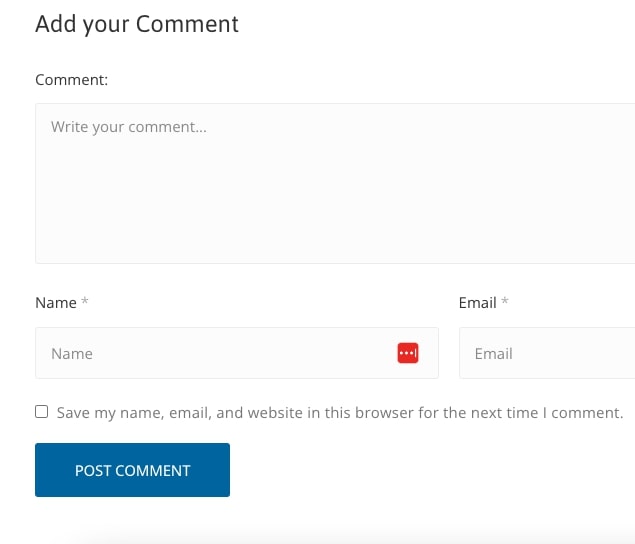
8)- Share on social media
In the digital age, it’s all about who you know and what you know. Suppose you want to be an expert in your field and have the credibility, expertise, and trustworthiness to back it up. In that case, you need to start networking with people already established in their respective industries.
The first step is to find people already known for what they do. You can use LinkedIn or other social media platforms like Facebook or Twitter.
Once you find these influencers, start following them on social media. Start engaging with them by liking their posts or commenting when appropriate.
This will help establish a connection with that person so that they will remember your name when they see it again later on in their feed of posts.
If you want to go one step further, follow these influencers’ blogs and subscribe to their newsletters so they can keep in contact with you!

9)- Update Content Regularly
The trustworthiness of a website is a big factor in determining if it is reliable. A website with outdated content will make the user question its credibility, which could lead to them not trusting it. Therefore, it is important to update content regularly so that users can trust what they are reading.
The internet is a dynamic place. With the rise of social media, content has to be fresh and updated regularly to keep up with the latest trends. This is why businesses must ensure that they are updating their content as frequently as possible.
They should also be aware of what they are saying in their updates and be honest and transparent with their followers.
10)- Work with Experts
We live in a world where we are flooded with information. Yet, when making a purchase decision, people are looking for the best expert to guide them.
Expertise is the most important factor when it comes to trustworthiness and authority. The more expertise you have in your field, the more trustworthy you become and the more likely people will buy from you.
It’s not just about being an expert in your field but also about how well you can communicate that expertise. If someone reading your content doesn’t understand what you’re saying or knows enough about your topic, they will think they can’t trust what you’re saying either.
Expert communicates their expertise through their own brand story (who they are) and their content (what they do).
11)- Add Contact Us and About Us Pages
The Contact Us and About Us pages are crucial parts of any website.
It is the first page that comes up when you search for a company on Google, and it is the last page you see when you leave a company’s website.
It is also the gateway to getting in touch with a company and making your request.
This section will cover how to design an effective contact us page, what information should be included, and how to optimize contact us pages for conversion rates.
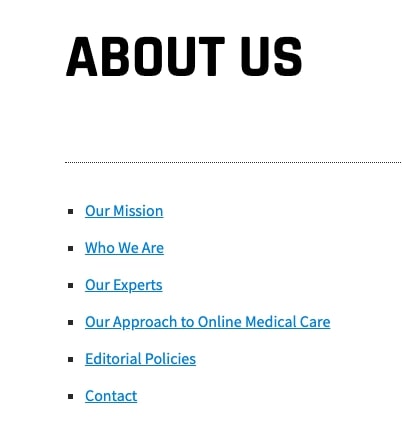
It is a great way to build trust with your clients. It allows them to reach out to you and start a conversation.
Adding a contact us page is easy to show people that you are interested in their feedback and want them to reach out with questions or concerns.
12)- Be Legit
The Internet is a wild place. There are so many articles, posts, videos, and more that it can be hard to know what is legitimate and what isn’t. It can be especially difficult for young people to know who to trust.
We want to ensure that you know that we are a real company with a team of writers and experts. We want you to feel confident when you read our blog posts or watch our videos.
Add a disclaimer page or require legal documents like certificates, user manuals, permission letters, authority letters, awards and recognition letters, or other re-verifiable supporting documents.
Final Thoughts
The Importance of E-A-T for Expertise, Authoritativeness, and Trustworthiness E-A-T is a concept that has been around in the marketing world for decades. It’s based on the idea that people are more likely to believe what experts say.
In marketing literature, E-A-T has been defined as “the degree to which someone is perceived as being an authority or expert in their field and trustworthy.”
It is important to have a strong understanding of the importance of E-A-T when writing online content. In addition, it is important to have a strong understanding of what these three elements are and how they can affect your content.
E – Expertise: This is knowledge or experience in a particular field. When writing about something you are an expert in, it will be easy for you to write about it confidently.
A – Authority: This is the perceived authority that someone has because they are an expert in their field or work for a reputable company. When writing about something you work at or know a lot about, it will be easier for people to trust what you say.
T – Trustworthiness is how much someone trusts someone else’s opinion or information based on what they see as reliable evidence (expertise and experience).
E-A-T is a set of three elements or components. It will affect your blog writing and content. Bloggers need to have a strong understanding of what E-A-T is so that readers can trust their content.
FAQs
EAT is an important ranking factor and we can’t deny its significant role in getting higher position at search engine results page.
The first important factor is your expertise. You need to be an expert in your field in order to rank well on Google. This means writing articles that cover everything from the latest developments in your industry and publishing them regularly, as well as having a blog that has been around for years and has a ton of credibility.
The next factor is authority: make sure your site is authoritative by linking out to reputable sources when appropriate, giving credit where credit is due, and using relevant keywords throughout your content so that it’s not just keyword-stuffing.
The third factor is trustworthiness: make sure you’re not spamming or using black hat SEO tactics, like cloaking.
Sharing is Caring







